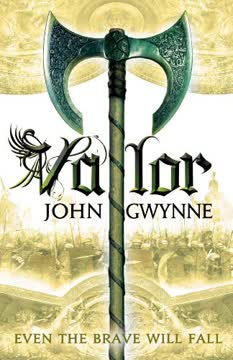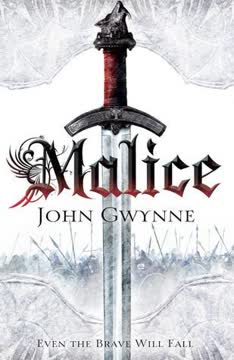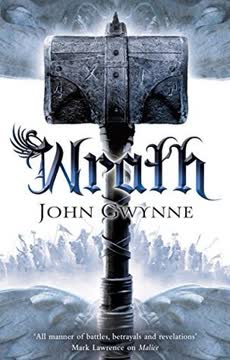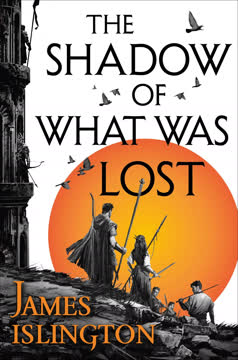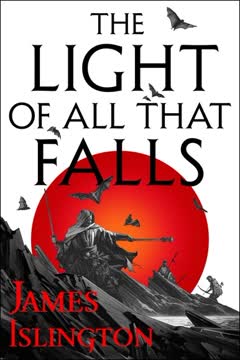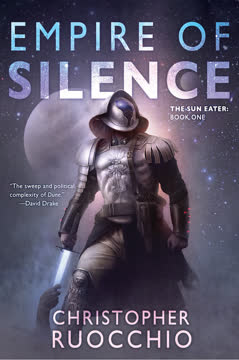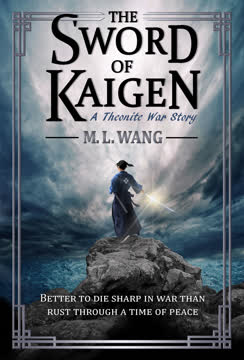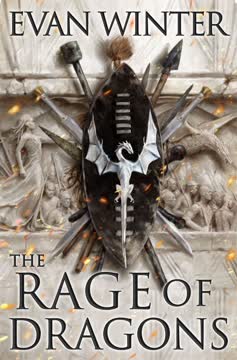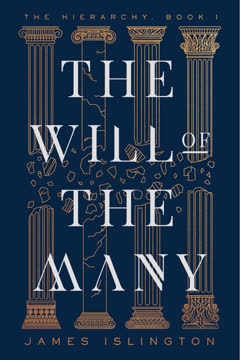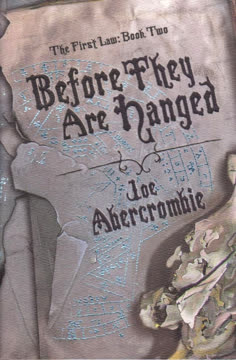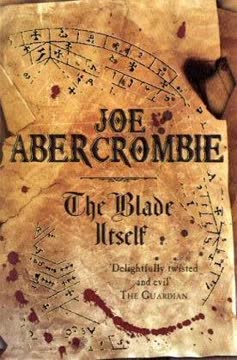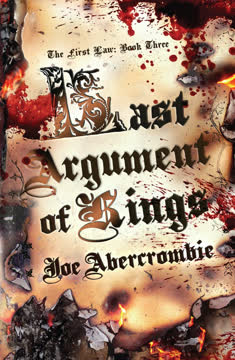Plot Summary
Shadows Over Dun Carreg
The story opens with the brutal sack of Dun Carreg, shattering the lives of Corban, Cywen, and their kin. As the fortress falls to betrayal and violence, the survivors are forced to flee into a world suddenly made hostile. The trauma of loss and the shock of betrayal set the tone, as families are torn apart and the old order is swept away. The darkness of war and the uncertainty of the future hang heavy, with the survivors—noble and commoner alike—clinging to hope and each other as they escape into the unknown, pursued by enemies and haunted by the ghosts of their past.
The Broken and the Fleeing
Corban, Edana, and their ragged band of refugees struggle to survive in the wilds, hunted by those who destroyed their home. Each character is marked by loss—parents, siblings, friends—and the pain of abandonment or perceived betrayal. Cywen, left behind, must navigate a conquered Dun Carreg, while Corban wrestles with guilt and the burden of leadership. The group's journey is fraught with danger, hunger, and the constant threat of discovery, but also moments of camaraderie and the forging of new bonds. The emotional landscape is one of raw grief, resilience, and the flickering hope of reclaiming what was lost.
Oaths and Betrayals
Across the Banished Lands, oaths are sworn and broken. Evnis, once a trusted counselor, reveals his treachery, aligning with dark powers and manipulating events for his own gain. Maquin, betrayed and hunted, is forced into a life of vengeance and survival, while Veradis, loyal to King Nathair, is drawn deeper into a web of political intrigue and moral compromise. The theme of betrayal—by kin, by friends, by self—echoes through every storyline, as characters are forced to question who they can trust and what they are willing to sacrifice for their cause.
The God-War Awakens
The world is on the brink of a new God-War, as signs and portents multiply. The Seven Treasures, relics of unimaginable power, become the focus of competing factions. Corban learns of his destiny as the Seren Disglair, the Bright Star, while Nathair is manipulated into believing himself the chosen of Elyon. Giants, angels, and demons stir, their ancient enmities reignited. The narrative swells with a sense of fate and the weight of prophecy, as characters struggle to understand their roles in a conflict that threatens to consume the world.
Wolves and Ravens
The animal companions—Storm the wolven, Buddai the hound, Craf and Fech the crows—are more than mere pets; they are symbols of loyalty, wildness, and the untamed forces at play. Storm's bond with Corban is a source of strength and fear, marking him as different and dangerous. The wolves and ravens serve as omens, guides, and sometimes avengers, their presence a reminder of the thin line between civilization and savagery, and the primal forces that shape the fate of men and kings.
The Shield Wall Rises
As war spreads, the shield wall—Nathair's innovation—becomes a symbol of the new order. Veradis leads his men with discipline and ruthlessness, cutting down all who oppose them. The old ways of honor and single combat are swept aside by the cold efficiency of massed ranks and drilled formations. The horror of battle is rendered in visceral detail, with the shield wall both a literal and metaphorical barrier between the past and the future, between hope and despair.
The Price of Vengeance
Maquin's journey is one of relentless vengeance, his humanity eroded by the violence and betrayal he endures. Captured and forced into the fighting pits by Lykos, he becomes a symbol of the cost of revenge—physically and spiritually. Orgull, his last friend, is lost in the blood and mud of the arena. The cycle of violence is unending, and the line between justice and vengeance blurs, leaving only pain and regret in its wake.
The Pirate's Chains
Lykos, lord of the Vin Thalun pirates, embodies the corrosive power of ambition and the dehumanizing effects of slavery. His rise in Tenebral is marked by brutality, manipulation, and the spread of the fighting pits. Fidele, once a queen, is reduced to a puppet, her will suborned by dark magic. The narrative explores the loss of agency, the seduction of power, and the ways in which violence and cruelty become normalized in a world at war.
The Queen's Web
Queen Rhin is the master manipulator, weaving a web of alliances, betrayals, and assassinations to secure her rule over Cambren, Narvon, and Ardan. Her machinations ensnare friend and foe alike, and her willingness to sacrifice anything—and anyone—for power is both awe-inspiring and terrifying. The emotional toll of her ambition is seen in the broken lives left in her wake, and in the growing sense that even the most cunning cannot control the forces they unleash.
The Black Sun's Path
The paths of Corban and Nathair converge on Murias, each believing themselves the chosen of prophecy. Corban, driven by love and loyalty, seeks only to save his sister, but is drawn inexorably into the heart of the God-War. Nathair, manipulated by Calidus and blinded by his own certainty, unleashes forces he cannot control. The emotional core is the tension between fate and free will, and the devastating consequences of believing oneself chosen.
The Cauldron's Gate
The climax builds as Nathair's army, aided by traitorous giants, storms the gates of Murias. The defenders—giants, wyrms, and a handful of loyalists—make their last stand. The cauldron, one of the Seven Treasures, becomes the focal point of hope and dread. Blood is spilled, sacrifices are made, and the boundaries between worlds begin to blur. The sense of impending doom is palpable, as the cost of victory becomes ever more uncertain.
Blood and Sacrifice
In the chaos of battle, Corban and Cywen are finally reunited, but at a terrible price. Gwenith, their mother, is slain, her death a shattering blow that reverberates through the survivors. The emotional arc reaches its peak, as love and grief, hope and despair, are inextricably entwined. The cost of valor is made brutally clear, and the survivors are left to pick up the pieces in a world forever changed.
The Demon Unleashed
Calidus' ritual at the cauldron unleashes the Kadoshim, ancient demons who possess the bodies of the Jehar. The ensuing battle is apocalyptic, with friends turned into monsters and the boundaries between flesh and spirit torn asunder. Meical and the Ben-Elim intervene, but the victory is pyrrhic. The survivors flee, haunted by the knowledge that the true war has only just begun.
The Last Stand at Murias
The survivors—Corban, Cywen, Gar, and their companions—escape Murias, battered and broken. They bury their dead, mourn their losses, and try to make sense of all they have endured. The emotional aftermath is raw and unvarnished, as the cost of valor is counted in tears and scars. Yet even in the darkness, there is a glimmer of hope—a sense that, together, they may yet find a way to resist the coming storm.
The Cost of Valor
As the dust settles, the survivors must choose their next path. The world is changed, the old certainties swept away. Corban, now fully aware of his role as the Bright Star, must decide what kind of leader he will be. The bonds of friendship and family are tested, and the question of what it means to be faithful—or to fall—lingers over all. The emotional journey is one of acceptance, resilience, and the determination to fight on, no matter the odds.
The Fallen and the Faithful
The final chapter is one of reflection and resolve. The Banished Lands are fractured, the lines between good and evil blurred. The faithful and the fallen gather their strength, each preparing for the next phase of the God-War. The survivors, marked by loss and hardened by experience, look to the future with a mixture of fear and hope. The story ends on the cusp of a new beginning, the promise of further trials and the enduring power of valor.
Characters
Corban
Corban is the emotional heart of the story—a blacksmith's son thrust into the role of the Seren Disglair, the prophesied champion of Elyon. Haunted by loss, driven by loyalty to his family and friends, Corban's journey is one of growth from innocence to hard-won maturity. His bond with Storm the wolven marks him as different, both feared and revered. Corban's psychological arc is defined by his struggle with destiny, the burden of leadership, and the pain of sacrifice. His relationships—with Cywen, Gwenith, Gar, and his companions—are the anchor that keeps him human amid the chaos of war and prophecy.
Cywen
Cywen's journey is one of resilience and resourcefulness. Left behind in the sack of Dun Carreg, she endures loss, captivity, and manipulation, yet never loses her fierce spirit. Her bond with Buddai the hound and her skill with knives make her both vulnerable and dangerous. Cywen's psychological depth comes from her feelings of abandonment, her longing for family, and her determination to carve her own path. Her reunion with Corban is both joyful and tragic, marked by the loss of their mother and the realization of the world's darkness.
Veradis
Veradis is Nathair's most trusted warrior, a man of discipline and conviction. His journey is one of increasing moral ambiguity, as he is forced to reconcile his loyalty to Nathair with the horrors he witnesses and the doubts that gnaw at his conscience. Veradis is both a symbol of the new order—the shield wall, the efficiency of war—and a tragic figure, haunted by the loss of friends and the realization that he may be serving the wrong cause. His relationship with Cywen adds a note of tenderness and regret to his otherwise stoic demeanor.
Nathair
Nathair believes himself the chosen of prophecy, the Bright Star, but is in truth a pawn of Calidus and the dark powers. His arc is one of hubris, self-delusion, and eventual horror as he unleashes forces he cannot control. Nathair's psychological complexity lies in his genuine desire to do good, twisted by ambition and the manipulations of those around him. His friendship with Veradis is both a strength and a weakness, and his fall is both inevitable and heartbreaking.
Maquin
Maquin's story is a descent into the abyss of vengeance. Betrayed, enslaved, and forced into the fighting pits, he becomes a symbol of the cost of violence and the corrosive power of hate. His relationship with Orgull, his last friend, is a tragic anchor, and his eventual refusal to kill Orgull is a moment of grace amid the bloodshed. Maquin's psychological journey is one of loss, rage, and the faint hope of redemption.
Gar
Gar is both mentor and protector to Corban, a warrior of the Jehar with a hidden past. His devotion to Corban and Gwenith is unwavering, and his skills are unmatched. Gar's psychological depth comes from his sense of duty, his longing for belonging, and his struggle to reconcile his violent past with his role as guardian. His reunion with his father Tukul is a moment of healing and affirmation.
Fidele
Fidele's arc is one of loss and subjugation. Once a queen, she is reduced to a puppet by Lykos' dark magic, her will and agency stolen. Her psychological journey is one of despair, rage, and the desperate hope for rescue or release. Fidele's suffering is a stark reminder of the personal cost of war and ambition, and her eventual act of defiance is a moment of catharsis.
Lykos
Lykos is the dark heart of the Vin Thalun, a man whose ambition and cruelty know no bounds. His rise to power is marked by manipulation, violence, and the normalization of atrocity. Lykos is both charismatic and monstrous, a symbol of the way power corrupts and dehumanizes. His psychological complexity lies in his self-justification, his moments of doubt, and his ultimate inability to escape the consequences of his actions.
Rhin
Rhin is the ultimate manipulator, a woman whose ambition and cunning shape the fate of kingdoms. Her willingness to sacrifice anything for power is both awe-inspiring and terrifying. Rhin's psychological depth comes from her loneliness, her fear of irrelevance, and her growing sense that she may have unleashed forces beyond her control. Her interactions with Corban and the supernatural are marked by both fascination and dread.
Calidus
Calidus is the true antagonist, a servant of Asroth and the manipulator behind Nathair's rise. His mastery of magic, his ability to twist prophecy, and his cold intelligence make him a formidable foe. Calidus' psychological core is his belief in the righteousness of his cause, his contempt for weakness, and his willingness to sacrifice anything for victory. He is both a symbol of the seductive power of evil and a cautionary tale about the dangers of certainty.
Plot Devices
Multi-POV Narrative Structure
Valor employs a multi-point-of-view structure, shifting between Corban, Cywen, Veradis, Maquin, and others. This device allows the reader to experience the war from multiple angles—victim, hero, villain, and bystander—building empathy and tension. The structure also enables the author to foreshadow events, reveal secrets, and create dramatic irony, as the reader knows more than any single character. The emotional impact is heightened by the intimacy of each perspective, and the sense of a world in flux is reinforced by the constant movement between storylines.
Prophecy and Foreshadowing
The narrative is driven by prophecy—the war between the Faithful and the Fallen, the coming of the Bright Star and the Black Sun. Foreshadowing is woven throughout, with dreams, omens, and the words of seers hinting at future events. This device creates a sense of inevitability, but also raises questions about free will and the possibility of change. Characters struggle to interpret and resist prophecy, and the tension between fate and agency is a central theme.
Symbolism and Motif
Wolves, ravens, and other animals serve as symbols of loyalty, wildness, and the untamed forces at play. The Seven Treasures are both literal and metaphorical keys to power and destruction. The shield wall is a motif of the new order, while the fighting pits symbolize the dehumanization of war. The supernatural—giants, angels, demons—serves as both backdrop and active force, blurring the line between myth and reality.
Betrayal and Moral Ambiguity
The story is rife with betrayal—by kin, by friends, by self. Characters are forced to make impossible choices, and the line between right and wrong is constantly shifting. The device of moral ambiguity deepens the psychological realism of the narrative, making every victory bittersweet and every loss profound. The cost of valor is never simple, and the faithful are often indistinguishable from the fallen.
Ritual and Sacrifice
Rituals—oaths, sacrifices, ceremonies—are central to the unfolding of the God-War. The act of sacrifice, whether in the fighting pits, on the battlefield, or at the cauldron, is both a plot device and a thematic core. The narrative structure often builds to moments of ritualized violence or decision, where the fate of individuals and nations is decided by blood and will.
Analysis
Valor is a sweeping epic of war, loss, and the search for meaning in a world torn apart by prophecy and ambition. At its heart, the novel is a meditation on the cost of valor—the pain, sacrifice, and moral compromise required to stand against darkness. The story refuses easy answers: heroes are flawed, villains are human, and the line between the faithful and the fallen is razor-thin. The multi-POV structure immerses the reader in the emotional lives of its characters, making every betrayal and every act of courage deeply personal. The use of prophecy and supernatural elements raises questions about fate and free will, while the relentless violence and shifting alliances force characters to confront the limits of loyalty and the true meaning of honor. In a modern context, Valor resonates as a story about the dangers of certainty, the seduction of power, and the enduring strength of love and friendship in the face of overwhelming odds. The lessons are clear: valor is not the absence of fear or doubt, but the willingness to act despite them; true strength lies not in victory, but in the refusal to surrender to despair.
Last updated:
Review Summary
Valour, the second book in The Faithful and the Fallen series, builds on the foundation laid in Malice. Readers praise Gwynne's character development, intense battle scenes, and exploration of good versus evil. The story's fast pace, emotional depth, and unpredictable plot twists keep readers engaged. Many consider it an improvement over the first book, with compelling character arcs and a richly developed world. The novel's themes of friendship, loyalty, and the consequences of war resonate strongly with fans, who eagerly anticipate the next installment.
